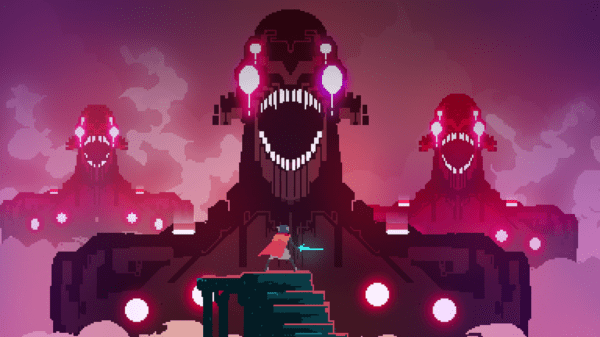The reviews in this two-part series cover two of the most popular deckbuilding card games available, Dominion and Ascension. For the previous coverage of Dominion, click here.
Deckbuilding games are different from the more popular Collectible / Trading Card Games such as Magic: The Gathering, Yu-Gi-Oh, and The Pokemon TCG. If you’re not familiar with how deckbuilding games work, click Here.
This part will cover Ascension, a niche game in a genre that is pretty niche onto itself. Ascension is developed and manufactured by Stoneblade Entertainment.
Ascension’s theme is… strange. Players play as a group of warriors and magicians who compete to gain the largest amount of honor to their name. The player with the most honor at the end of the game wins.
However, going off of this description, one would expect a traditional fantasy – middle ages art style, but Ascension’s art style is very, very different. It’s rather difficult to describe, and so unique that it can be difficult to tell what’s going on in some of the older sets until one takes a closer look. Check out the site for a glimpse at the art style.
Unlike the central pool in Dominion, the central pool of Ascension is not constant. The central pool is made up of 5 cards side-by-side, and when a card is removed from the center, it is replaced by another card pulled from the top of a single face-down “bank” deck.
Also unlike Dominion, there are two currencies that players can choose to accumulate, known as “Runes” and “Power”. Gaining “Runes” offers a play style more akin to a traditional deckbuilding game, as cards gained with Runes are added to a player’s discard and played later. Gaining “Power” allows players to defeat “monster” cards that can appear in the pool just like any other card.
Defeating “monster” cards grants a few points of fame, and many monsters offer an instant effect upon being defeated, such as drawing an additional card or forcing the opponent to draw 4 cards instead of 5 on their next turn. But unlike Dominion’s Victory Point cards, Monsters don’t go into a player’s deck – they’re sent straight off into “The Void”, a deck you’ll really never do anything with. It’s mostly just for monsters.
Before a game, players set a total number of honor for the honor pool. When players defeat monsters, they take points from the honor pool and add it to their own pools. When the pool reaches zero, the game ends, and the player with the most honor wins – but defeating monsters isn’t the only way to gain honor. Some cards allow players to gain honor without monsters, and all cards other than those a player starts with are also worth some amount of honor. In other words, just because you killed the biggest monsters doesn’t mean you’ll come out ahead – if your opponent’s deck was far more valuable than your own, they might be able to swing the game back in their favor.
There’s many more unique mechanics in the base set of Ascension than there is in the base set of Dominion – there’s resource shifting, Unity, Card Factions, Banishability, Unbanishability, Unique Ongoing Effects, Constructs, Construct-Exclusive Runes, and so on.
While it may sound like a lot, however, Ascension is actually much easier to play and get the hang of than Dominion is. In Ascension, you can always play every card in your hand, and buy as many cards as you have the resources to – there’s no “action points” or useless “Victory Cards” to balance out your deck.
In addition, Ascension’s cards become more and more powerful much more quickly than Dominion’s. The upper power limit is far higher, with some of the most expensive cards proving so impactful that they have the ability to swing an entire game in a single turn. Stuff like that is fun, impactful, and exciting – Seeing an opponent grab an endgame card in Ascension can be downright intimidating. Nothing in Dominion has that effect.
Games are faster and more aggressive – sharing from an ever-shifting pool means you can “steal” cards your opponents were gunning for, and they won’t be too happy about that.
However, the quicker power climb also leads to some balance issues. One card in the base set, for example, allows you to take an extra turn for a pretty low cost. It gets thrown into The Void after use (So you only get it once), but that’s still way too much bang for your buck.
In addition, while the limited pool makes games more unpredictable, it also makes games more…well…unpredictable. It’s not uncommon to pay runes for a card from the center pool that doesn’t quite fit with your strategy, only for it to be replaced by one of the best cards in the game’s unbalanced base set – a card that your opponent will now have the first chance to get their hands on, since you’ve already spent most of your runes. Even though it’s bound to happen both to you and for you at different points in your playtime, it’s still very frustrating.
And while offering unlimited actions does theoretically speed up the game, the limited pool can also slow it down. For example, if you build a deck around gaining lots of power and defeating lots of monsters, but no monsters appear in the central pool, there’s not much that can be done for you. You’ll need to establish some kind of balance between the two resources, but that’s much easier to do than all the micro-management Dominion requires.
In the end, Ascension is a faster-paced, more arcadey take on the deck-building formula. Games are best played in best-of-3 sets, but hardcore strategists might get frustrated when their plans fail due to factors outside of their control. It’s dumb and often nonsensical, but I still slightly prefer it over Dominion.
Unlike Dominion, however, there’s no way to try it out for free. At least not in the traditional sense.
However, you CAN download the base game on Steam Here. It’s technically free-to-try due to Steam’s refund system – play it for less than 2 hours and request a refund, and you’ll get all your money back in 2 to 3 days. There’s a mobile version on iOS and Android for half the price, but the online community there is smaller and the AI opponents are known to lag in certain situations. Also, no refunds for Apps.

















































